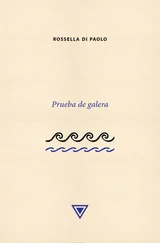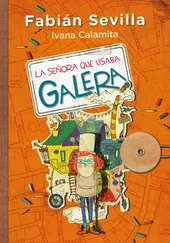• • •
H e spends his entire afternoon shift at the pool thinking about what he is going to say to Saucepan, and when it is time, he just says that he wants to leave the job, if possible only for a while. Saucepan can’t accept it.
Do you want a raise?
That’s not why.
Why, then?
I need a bit of time.
When do you want to leave?
Now.
You know that’s not how it works. I need a month’s notice.
A bald guy with a hugely muscular upper body and skinny legs lets out animallike grunts as he completes his last few reps in a set of lateral raises, dumps the dumbbells onto the wooden floor, and paces in circles around the weights room next to reception, panting as he goes. Débora rolls her eyes and goes back to the game she is playing on her cell phone.
A month is too long for me.
I need at least two weeks to find someone else.
I’ll stay another two weeks, then.
Okay, but talk to me. What would make you stay?
Nothing, Saucepan. Sorry. But I might be back in a while.
I can’t guarantee that you’ll have your job back.
I know. When it’s time, we’ll see. Thanks for the opportunity to work here. It’s been really important to me.
You’ll be missed, man.
Saucepan shrugs and leaves. Débora was listening to everything, and now looks at him with her lips pressed together and raised eyebrows.
I hope you have a good reason.
Me too.
Aren’t you ever going to shave off that beard? You’d look a lot better without it.
You think so?
Not just me.
I’ll give it some thought, then.
Are you okay?
In what sense?
You’ve been looking a bit down in the dumps lately. I’ve seen the winter here do a lot of people in.
It’s like a summer’s day today.
You know what I’m talking about. A guy finds himself on his own without his girl in the cold weather, quits his job, stops going out, no one sees him anymore. I don’t want you to… I dunno.
It’s not like that, Deb. I’m fine. Don’t worry about me.
If you need anything, talk to me. Okay? Anything.
He nods.
Take care, Mystery Face.
I bet the twins invented that one too.
Of course.
I haven’t left yet, Débora. I’ve still got two more weeks. See you tomorrow.
He hesitates a little before leaving and walks around the counter. Débora stands before he gets there, and they hug at length without saying anything. Beta walks past the glass door.
Your dog pulled through, didn’t she?
She’s great. I walked here today, slowly, and she came with me.
I heard she swims out in the deep with you.
She swims a little, yes, but not out in the deep. People exaggerate.
He tells Débora about his early-morning encounter with the whale, and she doesn’t seem particularly impressed. She touched a whale while surfing at Ferrugem Beach four winters ago and has seen dolphins leap out of the water right before her eyes as they chased a school of mullet. He gives up and says good-bye.
He buys a cheese sandwich from an itinerant vendor in the Silveira Supermarket parking lot, eats it sitting on the low wall next to the sidewalk, and by the time he starts to head home, night has fallen. The Al Capone is open as always, and he has a beer sitting at an outdoor table. Janis Joplin is playing softly in the background, and he remembers a cassette-tape compilation that he used to listen to on his Walkman on the bus to school. The Rastafarian waiter strokes Beta’s neck and looks both ways down the avenue as if something might happen. There is a couple inside, and two men at a table outside near his. They all know that this winter night is already over, and they’ll soon leave. No stranger will talk to him. No one has talked to him lately. He eats the salted peanuts, finishes his beer off quickly, and pays the bill.
He has walked just over a block toward the sea when a blackout blots out the town. The main avenue becomes a dark tunnel of cold wind. The stars slowly become visible, and his eyes adapt to the light of the new moon, revealing a world of silhouettes. On his way to the beach, all he can hear is the sound of Beta’s paws clicking on the tarmac. The black ocean snores in the darkness like a large slumbering animal, its waves breaking rhythmically like gentle breathing. Solitary figures go past on the sand, though it is unclear where they are coming from or going to. Gas lanterns light the insides of some of the fishing sheds. He carries Beta up the rickety steps and sets her down again on the footpath. The glow of a cigarette reveals another three or four figures coming in the opposite direction, and when they pass him, not far from his apartment, he feels a fist land with full force in his face and falls onto the narrow grassed area between the path and the rocks. His partial vision fails him altogether now, and his head throbs. As he tries to get his bearings, he hears Beta yelp. He clambers into a standing position and sees the figures crossing the strip of sand between the end of the path and the entrance to the square. A valve of pain opens, and he feels his left eye swelling. Beta is leaning against his legs. He squats and pats her. She appears unharmed. She must have been kicked. He almost shouts something and goes after his attacker, but the group is gone. They didn’t laugh, swear at him, or threaten him with anything, but their message was clear.
• • •
H e wakes up with a black half-moon under his eye, but the swelling has been brought down by the previous night’s ice pack. Broken blood vessels have tinged the white of his eye red. The pain comes and goes and extends up to his forehead and down to his chin. He goes for his walk on the beach with Beta and watches her enter the water on her own and paddle in the waves for a few minutes. On his way back he finds a fisherman sitting on a mountain of blue and white nylon that has been resting on Baú Rock for a few days. The man is strong, with tanned skin, a sparse beard, and curly hair and is dressed in a pair of dirty white soccer shorts and flip-flops. He stops for a moment at the top of the cement steps and watches the man use a reel of nylon twine, a small penknife, and a kind of plastic needle to mend the fishing net with the fast, hypnotic movements of an illusionist. The fisherman glances up from his work for just a second and smiles out of the corner of his mouth.
Trip over?
I got a free punch last night.
Who was it?
Couldn’t see. It was during the blackout.
I almost didn’t recognize you with that beard there.
He studies the fisherman again, looking for a sign that might remind him of his identity, but doesn’t find anything. He wants to ask but feels his pride like a hand on his mouth, the pride that Jasmim recognized. The lion on his throne. He misses her. Everything he imagined he’d share with her.
I’m sorry, but do we know each other?
It’s Jeremias, the owner of Poeta, the boat that was being repaired in front of the rock on his first morning in the apartment. He sits on a step and asks how the fishing season went. Not good, not good, says Jeremias. We get fewer fish every year. It’s the anchovy season now, but nobody’s catching anything. It’s tough. There’s croakers. The season opens soon, and we’re hoping to catch a few. All the while continuing to mend his net, he says that the Poeta ’s motor died in June and will have to be replaced, but he doesn’t know where he’ll get the money. I’ll tell you something. Fishermen like me will last another ten, fifteen years at the most in these parts. The big industrial boats are doing away with the fish. They round them up out at sea, and nothing comes to the coast. There’s no money in this anymore, and the young folks aren’t interested. None of my boys or nephews have gone into the trade. Not one. Of everyone here in the village, only three or four fishermen’s boys fish. The ones who’ve got money get degrees, open shops, become dentists. The ones who don’t work in tourism or look after summer houses. And there’re the ones who hang around and do nothing. Even us fishermen end up having to work on the side as bricklayers, waiters, garbagemen, postmen. When the seas are rough and it’s raining, you need five or six men to pull in a net, and there aren’t enough for the job. All these boats here, he says, pointing with his needle at the boats anchored in the bay, the whole lot’ll be running boat tours in ten years’ time.
Читать дальше












